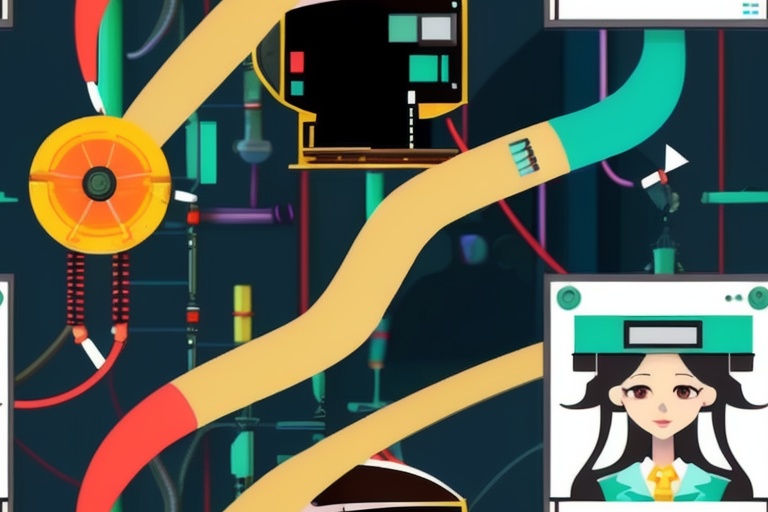Artificial intelligence (AI) has become a hallmark of modern technological advancement, resonating as a key driver of innovation across numerous sectors. With its roots firmly planted in the rich soil of human history, AI's evolution is a testament to the brilliance and ambition of countless pioneers. This transformative journey from primitive concepts to today's AI capabilities has been shaped by significant milestones that reflect human progress in understanding and developing intelligent systems.
Artificial intelligence (AI) has become a hallmark of modern technological advancement, resonating as a key driver of innovation across numerous sectors. With its roots firmly planted in the rich soil of human history, AI's evolution is a testament to the brilliance and ambition of countless pioneers. This transformative journey from primitive concepts to today's AI capabilities has been shaped by significant milestones that reflect human progress in understanding and developing intelligent systems.
The Birth of AI: Ancient Dreams to Mid-20th Century Breakthroughs
The concept of artificial intelligence is not a product of the modern era. In fact, the seeds were sown as early as ancient civilizations, with myths of mechanical beings imbued with intelligence. These early ideas laid the philosophical groundwork for AI, posing questions about the nature of intelligence and consciousness that are still pertinent in today's discussions about the field.
Fast forward to the 20th century, where the term artificial intelligence was officially coined in the mid-1950s. This period marked a burgeoning interest in developing machines that could replicate human reasoning. Researchers from various disciplines, including mathematics, psychology, engineering, and computer science, began to converge, creating a multidisciplinary quest for machine-based intelligence. Pioneering efforts during this time included the establishment of AI as an academic discipline and the advent of fundamental computer algorithms still in use today.
Setting Course: AI in the Late 20th Century
As the late 20th century unfolded, AI experienced fits and starts known as "AI winters," where funding and interest waned due to unmet expectations. Despite these setbacks, the field continued to advance through the dedication and ingenuity of researchers who drove innovation in machine learning algorithms, problem-solving methods, and knowledge representation—all critical components of contemporary AI systems.
A New Dawn: AI Integration in the 21st Century
Entering the 21st century, AI began to emerge from theoretical shadows into the practical sunlight. With the availability of massive data sets and enhanced computational power, AI systems flourished, giving rise to machine learning models capable of self-improvement. As a result, AI started to transition from experimental labs into real-world applications, transforming industries such as healthcare, finance, and transportation.
During this time, virtual assistants and recommendation algorithms became household features, reflecting AI's penetration into daily life. These developments foreshadowed the role AI would play in shaping human interaction with digital technology, demonstrating its potential to serve as a bridge between technical complexity and everyday usability.
AI Today: Ubiquity and Ethical Paradigms
Today, AI is omnipresent, fueling technological breakthroughs and enhancing human experiences in previously unimaginable ways. Virtual assistants provide convenience and personalized service, while AI in healthcare delivers precision diagnostics and treatments. Furthermore, complex algorithms are reshaping the landscape of sectors like finance with innovative risk assessment and fraud detection capabilities.
However, AI's pervasive growth brings with it ethical considerations that must not be overlooked. While it presents limitless potential, responsible stewardship of AI is paramount to navigate the inherent challenges of bias, privacy, and autonomy that accompany its use. It is imperative that as we forge ahead, the development and implementation of AI are aligned with values that prioritize the well-being and rights of individuals and communities.
Looking to the Horizon: The Future of AI
Peering into the future, AI is poised to continue its trajectory as a catalyst for paradigm shifts in virtually every domain of human activity. The cultivation of AI's capabilities promises to revolutionize industries, equipping us to address complex challenges, from climate change to public health crises. The ongoing research in AI empowerment is expected to yield systems capable of augmented learning, intricate problem-solving, and even enhancing our own cognitive functions.
At the core of AI's evolution lies the synergy of interdisciplinary collaboration, which spurs continued exploration and innovation. By embracing the full spectrum of possibilities AI offers, while simultaneously cementing ethical principles into its foundation, the road ahead can lead to a harmonious relationship between humanity and technology—one that evolves and improves the fabric of society for generations to come.
In synthesizing the marvels of artificial intelligence, one can appreciate the intricate tapestry of its evolution, woven from threads of imagination, perseverance, and discovery. From automata that sparked the curiosity of ancient philosophers to modern AI systems ingrained in the fabric of social and economic structures, AI has and will continue to be a pivotal influence on the human journey. As we embrace this dynamic field with cautious optimism, the dialogue between human and machine intelligence will undoubtedly enrich our world, offering a window into a future filled with promise and potential.
Information for this article was gathered from the following source.




